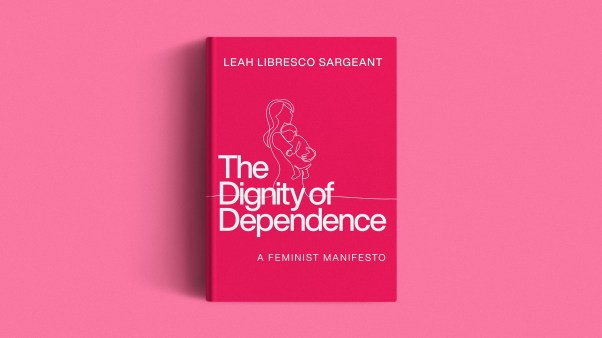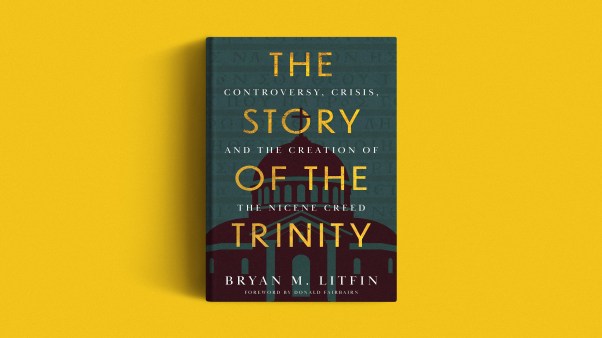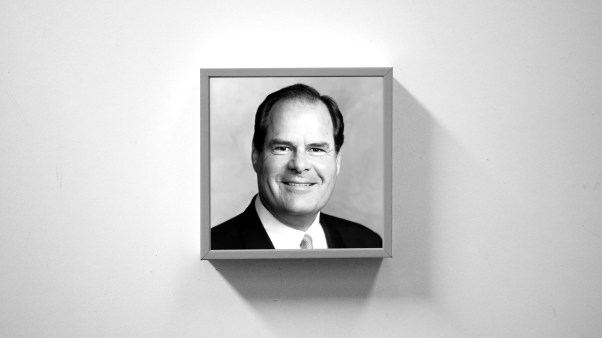Dwight L. Moody, the genial bearded heavyweight evangelist who died ten days before the calendar clicked into the nineteen-hundreds, is remembered on many counts: apostle of the love of God to an age that overstressed God’s wrath; the outstanding American religious figure of his century; a layman who gave the laity their long-neglected opportunity in spiritual work and who put more men and women into Christian service than any other of his time. The Moody and Sankey campaigns have a distinct niche in British and American story. As an agnostic biographer neatly put it, Moody reduced the population of hell by a million souls, while the schools he founded—at Northfield in Massachusetts, and the Bible Institute at Chicago, pioneer of all Bible institutes—are living memorials of his vision and vigor.
Moody’s outlook is particularly relevant to present-day theological debate because he has high claim to be seen as grandfather of the ecumenical movement.
Interest in Christian Unity
Ecumenism has many sources. As a matter of history there can be little dispute that the two chief springs of the movement were Moody’s Northfield Conference of August, 1885, with its Appeal to Disciples Everywhere calling for a united campaign of world evangelism to be planned by “an ecumenical conference”; and the Student Conference convened by Moody in July, 1886, on the campus of his five-year-old Mount Hermon School. From the latter came the Student Volunteers with their motto, “The Evangelization of the World in this Generation.” Both springs were direct effects of the stirring of Christian consciousness by the Cambridge Seven, that band of wealthy, athletic, and aristocratic Englishmen who early in 1885 abandoned ease and privilege to be missionaries to China. All seven had been either converts or workers in Moody’s Second British Campaign of 1882–84.
The Northfield stream with its “Appeal” flowed through the ecumenical missionary conferences held in London, 1888, and in New York, 1900; the Mount Hermon stream through the impact of the Student Missionary Volunteers upon America and Europe under Robert Wilder and John R. Mott and through the rise of the Student Christian Movement. The two streams flowed together under Mott’s chairmanship of the Edinburgh Conference of 1910, which is accepted as ecumenism’s 1066 (or 1776!).
The ecumenical movement as it is today may usefully be measured against its grandfather Moody’s views on unity.
From his earliest “Crazy Moody” days in Chicago when the young zealot shook and angered the get-rich-quick city and men under his spell laid aside strong denominational prejudices to unite in bringing Christ crucified to the “barefoot boys” of skid row, Moody pressed what J. V. Farwell called his “all absorbing idea of making the world feel the power of Christian union in active work for the masses.” Moody never considered unity as an end in itself, but as vital for evangelism—because mankind needed saving and there was no time to lose on bickering. It was to a Roman Catholic archbishop that Moody, stout evangelical though he was, said in the nineties that he “wanted to see New York shaken for Christ and wouldn’t it be a grand thing if all the churches swung into a simultaneous effort. The Archbishop had the power to do it for the Roman Catholic churches, and the other churches would follow the lead.”
Moody, with a characteristic toss of the head, would have puffed at laborious negotiations to promote unity for its own sake. But the Moody and Sankey campaigns were the strongest force for Christian unity in the nineteenth century, as Moody’s vision of union grew from carrying Chicago for Christ to include, before he died, “the glorious object of a world’s evangelization.”
True unity cannot grow in a vacuum. It develops from mission. When Moody and Sankey, almost totally unknown, were invited to Edinburgh by prominent Presbyterian divines in the winter of 1873, they found themselves in a divided Scotland, where previous attempts to dissolve disruption by discussion had merely bred deeper bitterness. Suddenly men of the opposing kirks found themselves working together in “our decorous city stirred to the depths by two strangers.” Sectarian divisions were forgotten; warmth and kindness grew. What weary years of wrangle had failed to promote, mutual devotion to Christian mission produced almost unawares.
Moody flung wide the frontiers of unity. He liked to see local churches working together as churches in his city campaigns, in mutual dedication with others of various traditions. Any who would cooperate were welcome even if ministers were not agreed with him on controverted points. The Gospel was its own refiner’s fire. Moody’s aim and message and method were so uncompromisingly biblical, evangelical, that a man whose beliefs were unbiblical, unevangelical, might refuse to cooperate; but Moody was ready to draw him in if offered opportunity.
He relied on local campaign committees to sift most carefully those who wanted to work in the inquiry room and to exclude any who would snare “anxious souls” into their own peculiar sects or fads. He refused any aid from Unitarians, among whom, as it happened, he had been bred. “Unitarians insult Christ,” he would say, “and whoever insults Christ insults me.” If a Unitarian turned Christian, Moody was the first to embrace him. He cared not at all what a man had been—Unitarian or Mormon, alcoholic or adulterer—if in sincerity his present love and motive lay at the feet of the Saviour. In other words, the measure of unity is basic loyalty to Christ as revealed in the Word of God. On this basis the frontier of unity can be pushed to the very edge of hell, for “the magnet that goes down to the bottom of the pit is the love of God.”
What of Modern Ecumenism?
The ecumenical movement has carved many channels since its rise in a distinctively evangelical, missionary sector. How might Moody feel towards it now?
He would approve World Church Service and similar social concerns; for “there was no preacher,” the Scottish biblical scholar Sir George Adam Smith said in 1900, “more practical or civic amongst us,” and the milestones of Moody’s road across Britain and America were new Y.M.C.A. buildings, temperance halls, and rescue missions. He would regret, however, the tendency to count practical aid as sufficient in itself; service for body and mind must be balanced by service for the soul. This was the crux of his schools system: “Mr. Moody insisted that education was not worthwhile unless the heart was right.”
As to ecumenism’s doctrinal inclusiveness, its unsure definition of the Gospel, and its presupposition of the compromised authority of the Bible, Moody’s reaction might well be garnered from his attitude to the parallel problem of his own day: higher criticism. Indeed, he defined the purpose of his Northfield conference as “Christian unity … but along with the idea of Christian unity goes the Bible as it stands.”
Moody deplored the effect of criticism on the life of the Church, but his public attitude was essentially positive. Criticism did not frighten him. His own faith in the authority and power of the Bible lay secure, and therefore he regretted the piecemeal defense with which some conservatives sought to rebut each critical theory. He told them not to waste energy but to use the Bible, to let it convict and convert.
He refused to indulge in personalities: “The critics raise questions which do not help the spiritual life; their opponents retort with bad temper and personal recrimination.” Don’t denigrate, he said. Don’t be isolationists like the Plymouth Brethren, “eating their gingerbread all by themselves in a corner.”
Be positive, he urged. Truth edges out falsehood. His answer to higher criticism was to train men and women in his schools and his Bible Institute, “and as fast as they can prove themselves good workmen, send them out to all lands,” to reach unchurched millions. “The masses,” he said of America in 1897, “are sick and tired of speculative theology in the pulpit.… People are not fed. They are hungering and thirsting for the pure Gospel.”
Do not withdraw. Give a lead. That would be Moody’s call today. “Let us get up all the steam we can and put up the sails and go ahead.” A primary, overriding determination to proclaim among “the masses” at home and “the heathen” abroad that “there’s no sin so big or so black or so corrupt and vile but the blood of Christ can cover it,” that God was in Christ reconciling the world and himself and calls all men everywhere to repent, must surely shake every lesser priority into its proper, lower place.
To D. L. Moody Christian unity was meaningless except in the context of revival. “It is my opinion that the closer we can keep to apostolic times the better.… Human nature has not changed in the last 1,900 years. Preach a different gospel from that which was successful in apostolic times? Oh, bosh.… What can save the life of the nation? Only the strength of a quickened Church, and the Church can only be quickened by a visitation of power such as the old apostles knew.”
J. C. POLLOCK
Devonshire, England










